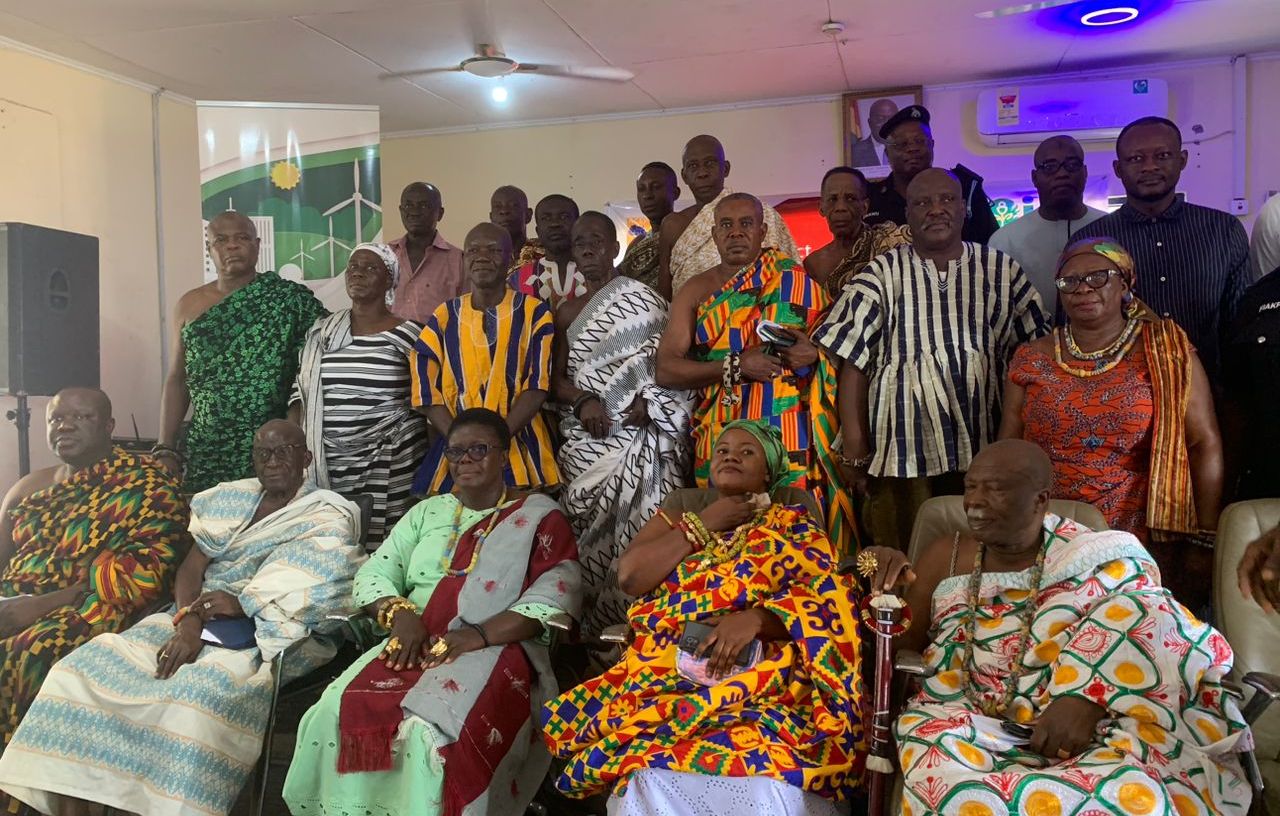
Saltpond (C/R), March 14, GNA – The Institute for Energy Security (IES) says the discovery of lithium could help improve Ghana’s economic fortunes in the next few years.
It has, therefore, called on the Government to engage in the best negotiations with the mining companies in terms of equity, taxes, value addition and transparency to ensure the country fully benefitted from the discovered resource.
Ghana had over the years exported mineral resources such as gold, oil, diamond, among others in their raw forms, denying it huge revenues from added value for growth and development.
The IES noted that it was time to enter positive negotiation to ensure raw materials were processed in the country to enable it to export finished products for huge share in the mining sector after extraction.
These were made known at a District stakeholders’ engagement organized by IES and Africa Centre for Energy Policy (ACEP) at Saltpond in the Mfantseman Municipality of the Central Region.
The meeting on the theme: « Avoiding the Mining Curse, Promoting Efficient and Sustainable Lithium Extraction in Ghana”, was to solicit the views of stakeholders on efficient and sustainable lithium extraction in the country.
Mr Edmond Kombat, the Director of Research and Finance at IES, said it was imperative to engage stakeholders to ensure that transparency and accountability prevailed in the resource extraction management for development.
He said the move was to serve as a foundation for policy conversation with duty bearers to make sure citizens and their communities benefitted from the discovered resource.
It is also for transparent lithium regime that would work to benefit all, especially the vulnerable to avoid the mining curse facing the country.
“Mining companies after extraction enjoy all the benefits, leaving communities in their catchment areas to bear the blunt of life-threatening dangers associated with their operations and it is time to stop that practice and also process the raw goods locally,” he added.
Mr Kombat called on the authorities to develop a careful lithium value-chain that would provide the country the raw materials for the creation of Electric Vehicle (EV) batteries to transition the 2022 to 2027 energy framework.
EV battery is a rechargeable battery used to power the electric motors of a battery electric vehicle (BEV) or hybrid electric vehicle (HEV).
The Ministry of Energy launched the national energy transition framework to serve as a guiding pathway towards achieving carbon neutrality.
The EV batteries would play a pivotal role in the Net Zero vision of 2050, which was transitioning from fossil fuel to greenhouse gas emissions.
The Director stated that there was the need to deliberate with leaders to gather the needed information to shape policy advocacy around the new discovered mineral resource.
Dr Abdul Wahab, a Research Consultant, in his presentation, recommended that the mining companies and government needed to strongly collaborate to provide alternative jobs for the unemployed youth of the area to prevent them from venturing into illicit mining.
“Again, the government should ensure the local community is well strengthened to demand accountability and implement environmental standards and regulations,” he said.
Nana Mbroba Dabo I, Queenmother of Anomabo Traditional Area, advised traditional rulers to put the interest of the citizenry first when negotiating with mining companies for infrastructural development.
She said the improvement of the citizenry must always be prioritized by the rulers to ensure their contribution to development.
“Nananom should not depend on the small chops offered by the companies but demand the needed development projects when negotiating,” she added.
Stakeholders at the forum pledged their commitment to facilitate best negotiations with mining companies for the betterment of the people and country.
The stakeholders included traditional leaders, Municipal Assembly members, the Environmental Protection Authority, Department of Agriculture, Clergy, Security agencies, Managers of Atlantic Lithium, and the Media.